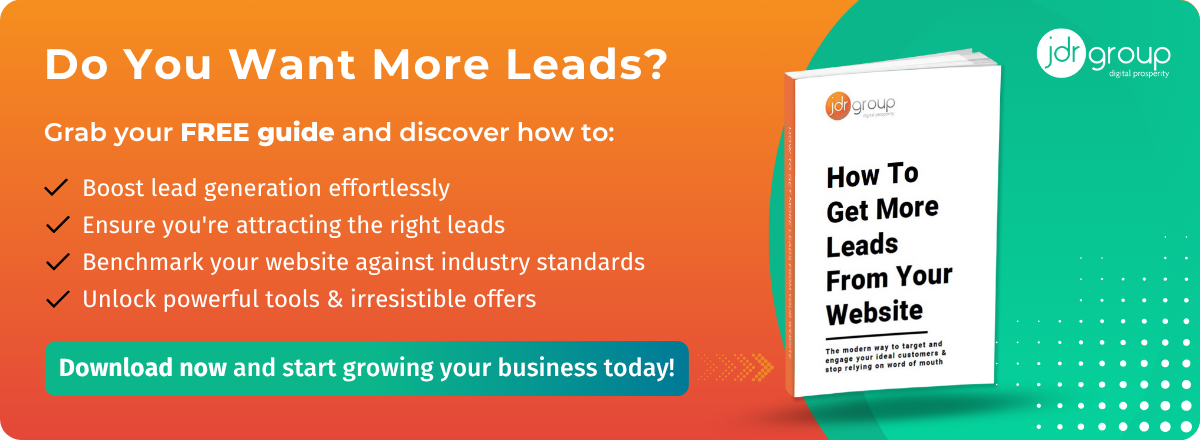SEO Essentials: A Guide For Small Business Owners To Improve Their Online Visibility And Ranking

Search Engine Optimisation (SEO) is the key to online visibility and sales. SEO helps Google crawl your website to determine how relevant your content and business website are to search queries, and how high you should rank on their search results, so if you don’t get the basics right, your ideal customers won’t be able to find your business through online searches!
But SEO is a large and complex field – an entire industry has evolved around it – and it can be hard to figure out where to start, so in this article, we’re going to look at the absolute essentials that business owners need to know about SEO to improve online visibility and ranking, without it eating too much into productive time.
1. Paid Traffic Is Great But Organic Traffic Will Make You More Money
Why worry about organic search traffic when pay-per-click (PPC) advertising on Google and social media is so effective? Because, on average, organic traffic accounts for over 50% of a website’s total traffic, and organic leads also cost less than paid leads. Besides this, many users – up to 70% to 80% – completely ignore paid adverts, going straight to the organic search results. Businesses that don’t use SEO miss out on a lot of these potential customers, who normally end up going to their competitors. So by using both organic SEO and PPC within a combined digital marketing strategy, you’ll be able to increase your traffic and lower your cost per sale, by maximising the number of leads who ‘stumble upon’ your website for free.
2. Informative Web Pages Rank Better On Google
Google appreciates in-depth and informative content and rewards authoritative web pages with a high rank. The top-ranked pages on Google average over 1,400 words of content, so it’s worth investing in detail and relevancy in your articles and other web page content, taking the time to research the commonly asked search questions of your target customers, and answering them in full.
Longer content gives readers more information and allows them to delve deeper into the subject matter, while also giving you more opportunities to include longtail keywords and phrases that can improve your search visibility. This doesn’t mean you need to publish an essay every time you write a blog post, but your pillar pages and core landing pages must be informative to attract traffic, boost your conversion rate, and attract quality backlinks.
3. Quality Matters For High Search Rankings On Google
Google is a stickler for quality and is constantly updating its search algorithms to raise the benchmark for written and visual content on its search engine. So, in addition to the raw length of your content, important factors such as readability, keyword density, and grammar are also essential for SEO success. It is worth working with an experienced content agency or using a high-quality marketing-focused editing tool, to help you quickly check your word count and ensure you’re using the right types of words and phrases in your content to attract the right customers.
4. Off-Page And On-Page Factors Both Matter For Seo
SEO includes both off-page and on-page aspects, so it’s important to focus on both sides of the coin when optimising your website and content for search engine visibility. Simply putting a good website online and publishing regular content won’t, on its own, guarantee you the high search ranking you’re looking for.
What do these terms mean? On-page SEO includes the internal structural elements of your website itself, such as the keyword density in your content, headings, titles, meta descriptions, alt text, and images – as well as XML site maps and other programming cues that help search engines understand what your website is about and how it should rank in search results.
Off-page SEO, on the other hand, covers all the external factors that help your website rank well– including link building, social media marketing, content promotion, and so on.
5. Your Content Needs To Be Optimised For Mobile Users
No matter what type of customer you’re targeting with your content, chances are that they’ll use a mobile device for their search queries at least some of the time, even if they’re primarily office based. Your website must, therefore, be optimised to respond well to mobile networks and screen sizes, and also be optimised for voice searches on Siri and other vocal search engines. You can do this by incorporating natural language search queries and long tail keywords into your content, as well as the shorter clipped keywords traditionally used in typed searches.
6. Save Time And Money By Working With An Agency
Finally, you may benefit from working with an experienced SEO specialist for a far cheaper and more time-efficient approach for your business than trying to do everything yourself or employing people in-house. An agency such as JDR Group will already have the tools, processes, and knowledge in place to start developing your content and ranking your website, so you can concentrate on developing your business while leveraging the benefits of greater Google visibility.
Digital Marketing Services For Small Businesses
At JDR Group, we offer a range of digital marketing services for small business owners, including SEO and content marketing. We’ll look after your SEO for you so you can concentrate on growing your business – saving you time and money in the process. To find out more, please get in touch today to speak with one of our marketing team.
Image Source: Pexels



